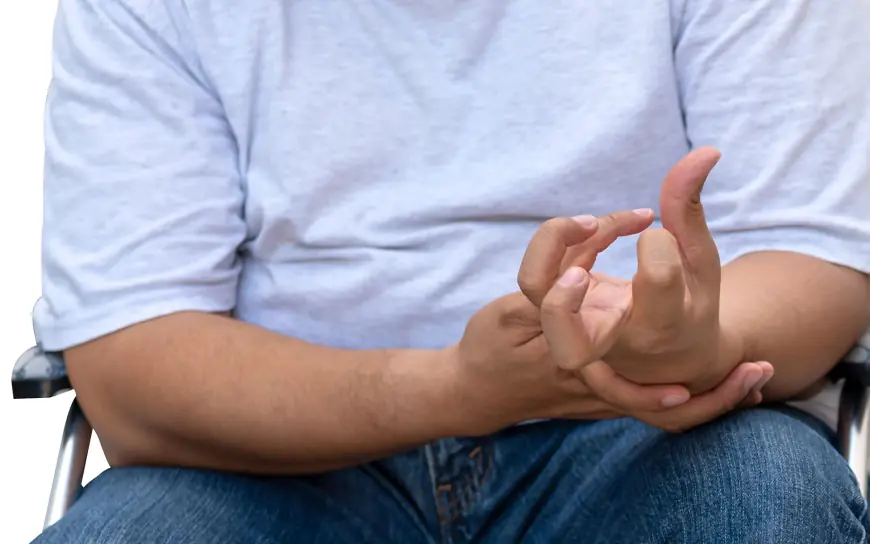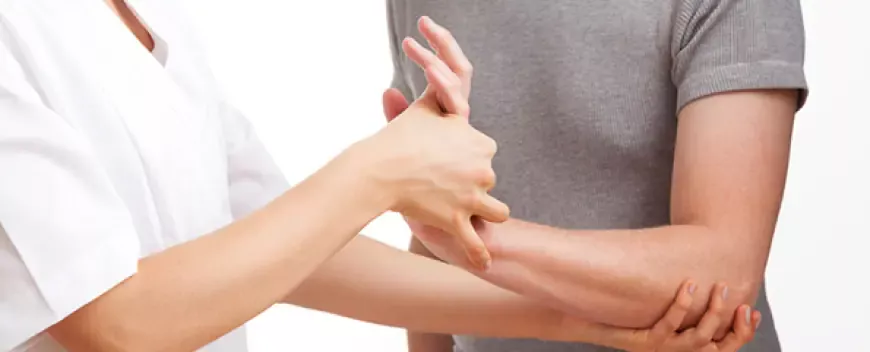Understanding the Early Symptoms of Paralysis: A Guide to Better Health with SRIAAS
Recognizing the early symptoms of paralysis can be life-changing, as it opens the door to prompt and natural treatment options.

SRIAAS, a renowned Ayurvedic healthcare organization, is committed to transforming lives by making healthcare accessible and effective. By integrating ancient Ayurvedic wisdom with modern healthcare solutions, SRIAAS addresses chronic disorders such as kidney diseases, infertility, Parkinson’s, and more. Their expertise extends to recognizing and managing conditions like paralysis, where timely intervention is critical. Recognizing the early symptoms of paralysis can be life-changing, as it opens the door to prompt and natural treatment options.
Paralysis is a condition marked by the loss of muscle function in one or more parts of the body. Often associated with damage to the nervous system, it can manifest suddenly or develop gradually over time. Understanding its early signs not only helps in identifying the condition but also ensures timely medical attention, which is crucial for effective treatment and management.
What is Paralysis, and Why Early Detection Matters?
Paralysis occurs when the communication between the brain and muscles is disrupted. This can result from various causes, including stroke, spinal cord injury, nerve damage, or underlying chronic conditions. In some cases, the onset of paralysis is sudden, such as in the case of a stroke, while in others, it may emerge over weeks or months.
Early detection plays a pivotal role in improving the quality of life. Ayurveda, with its holistic approach, emphasizes identifying the root cause and offering natural, non-invasive treatments. At SRIAAS, patients receive personalized care designed to restore balance and enhance well-being.

Recognizing the Early Symptoms of Paralysis
Understanding the early warning signs of paralysis can make a significant difference in treatment outcomes. Below are some common symptoms:
-
Muscle Weakness
A common precursor to paralysis is a noticeable weakness in the muscles. This might start as difficulty in gripping objects, maintaining posture, or performing everyday tasks. -
Numbness or Tingling
A persistent sensation of numbness or tingling, especially in the extremities, is often an early indicator of nerve damage. This sensation might spread gradually to larger areas of the body. -
Loss of Coordination
Paralysis can begin with reduced coordination, making it difficult to walk steadily or control fine motor movements. -
Difficulty in Speaking or Swallowing
In some cases, early symptoms may include slurred speech, difficulty forming words, or trouble swallowing. -
Unexplained Pain or Discomfort
Pain that radiates through the body, particularly in the back or limbs, may signal underlying nerve issues leading to paralysis.
Ayurvedic Perspective on Paralysis
In Ayurveda, paralysis is often linked to an imbalance in the Vata dosha, which governs movement and nerve function. Ayurvedic treatment focuses on restoring this balance through herbal remedies, therapeutic massages, detoxification, and dietary adjustments.
SRIAAS stands out by offering individualized care tailored to each patient’s unique constitution and condition. Their approach integrates time-tested Ayurvedic techniques with a modern understanding of chronic diseases, ensuring comprehensive and effective care.
Causes of Paralysis
Identifying the root cause is crucial in determining the appropriate treatment plan. Common causes of paralysis include:
-
Stroke: A leading cause of paralysis, stroke occurs when blood flow to the brain is interrupted.
-
Trauma: Spinal cord injuries and head trauma can damage nerves, leading to paralysis.
-
Neurological Disorders: Conditions such as multiple sclerosis and Parkinson’s disease can result in progressive muscle weakness.
-
Infections: Diseases like polio and Guillain-Barré syndrome may lead to paralysis.
The Role of SRIAAS in Managing Paralysis
SRIAAS is committed to holistic healing, focusing on the root cause of ailments rather than just alleviating symptoms. For conditions like paralysis, their Ayurvedic treatments incorporate:
-
Herbal Medicines: Formulated to improve nerve function and muscle strength.
-
Panchakarma Therapy: Detoxification procedures to remove toxins and restore balance.
-
Lifestyle Modifications: Tailored dietary and lifestyle plans to support recovery.
-
Rehabilitation: Comprehensive support for physical and mental well-being.
Conclusion
Recognizing the early symptoms of paralysis is crucial for timely intervention and effective treatment. With SRIAAS’s expertise in Ayurveda, patients receive not just treatment but a holistic path to recovery and improved health. Whether addressing chronic conditions or preventing complications, SRIAAS is a trusted partner in health and healing.
For more information about paralysis and how Ayurveda can help, visit SRIAAS Paralysis Treatment. Their commitment to natural, accessible healthcare ensures that no one faces health challenges alone.












